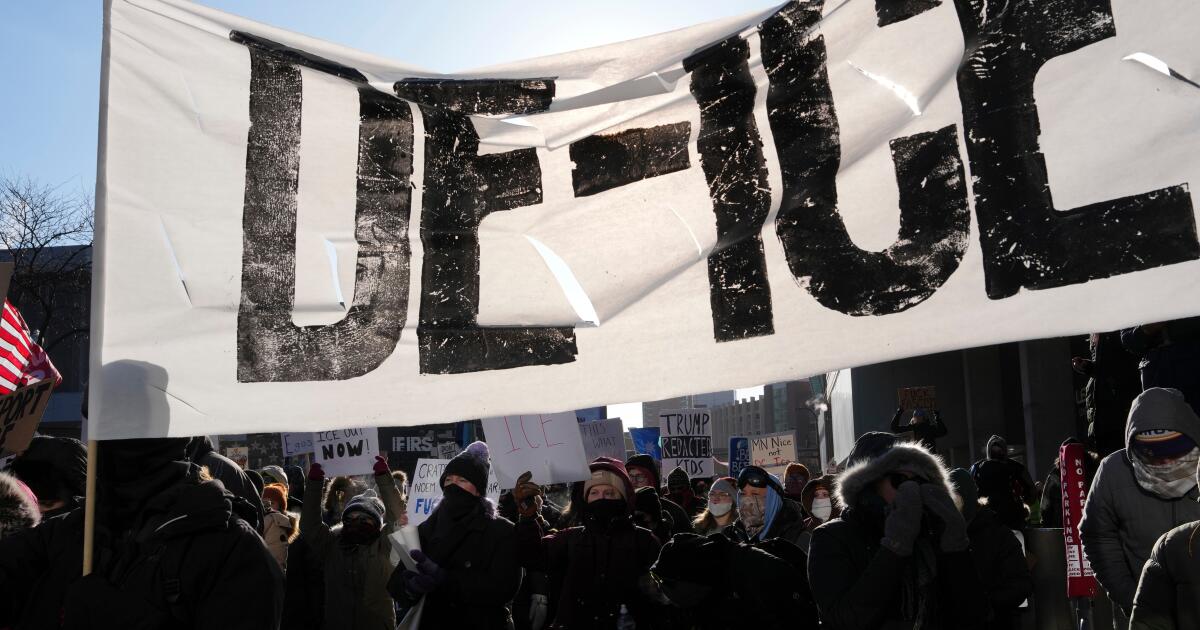U.S. Atty. Gen. Pam Bondi announces 2 more arrests in the St. Paul church protest
MINNEAPOLIS — U.S. Atty. Gen. Pam Bondi on Monday announced two more arrests following a protest at a Minnesota church against the immigration crackdown, bringing the number of people arrested to nine.
The nine were named in a grand jury indictment unsealed Friday. Independent journalists Don Lemon and Georgia Fort were among four people arrested Friday. Three others were arrested earlier in the week, including prominent local activist Nekima Levy Armstrong.
A grand jury in Minnesota indicted all nine on federal civil rights charges of conspiracy and interfering with the 1st Amendment rights of worshippers during the Jan. 18 protest at the Cities Church in St. Paul. A pastor at the church is also a U.S. Immigration and Customs Enforcement official. The protest generated strong objections from the Trump administration.
In a social media post Monday, Bondi named the latest two arrestees as Ian Davis Austin and Jerome Deangelo Richardson. She gave no details of their arrests.
Lemon, who was fired from CNN in 2023 following a bumpy run as a morning host, has said he had no affiliation to the group that disrupted Sunday service by entering the church. He has described himself as an independent journalist chronicling protesters.
The indictment alleges that Richardson traveled to the church with Lemon while he was streaming and that Richardson told Lemon they needed to catch up to the others. It also alleges that Austin stood in the aisles of the church and loudly berated a pastor with questions about Christian nationalism.
Online jail records show Austin was arrested Friday. It wasn’t immediately clear when Richardson was taken into custody.
Austin’s attorney, Sarah Gad, did not immediately return a call seeking comment. Court records don’t list an attorney for Richardson who could comment on his behalf.
The Justice Department began its investigation after the group interrupted services by chanting, “ICE out” and “Justice for Renee Good,” referring to the 37-year-old mother of three who was fatally shot by an ICE officer in Minneapolis.
Cities Church belongs to the Southern Baptist Convention and lists one of its pastors as David Easterwood, who leads ICE’s St. Paul field office.
Karnowski writes for the Associated Press.
